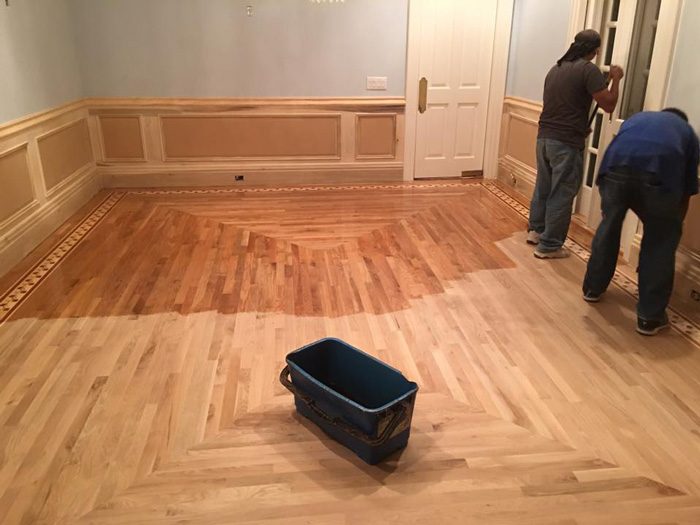
Installing new hardwood flooring is a major investment. It can dramatically improve the beauty, value, and comfort of your home. However, choosing the right contractor in San Antonio is just as important as selecting the right flooring. The wrong choice can lead to delays, damage, or poor workmanship that costs you more in the long run. The right contractor will deliver flawless results that last for decades.
Here’s how to find a trustworthy hardwood flooring contractor, along with tips to avoid common pitfalls.
1. Look for Industry Affiliations and Ratings
Start by narrowing down companies that are backed by recognized industry organizations. Membership in groups like the National Wood Flooring Association (NWFA) shows a commitment to quality standards and ongoing education. Also, check their Better Business Bureau (BBB) rating for a snapshot of their customer satisfaction and credibility.
Designer Wood Flooring is affiliated with the NWFA and maintains a strong BBB rating.
These credentials signal professionalism, accountability, and community trust.
2. Choose a Specialist, Not a General Contractor
Hardwood flooring is a specialized skill. Many contractors advertise everything from roofing to drywall to flooring. That kind of general service usually means limited expertise.
Look for a company that focuses strictly on flooring and offers services like:
- Custom hardwood floor installation
- Sanding and refinishing
- Floor repairs and patching
- Decorative inlays and borders
Specialists bring the attention to detail and precision needed for a high-quality outcome.
3. Make Sure They Are Licensed and Insured
Only work with contractors who can show proof of licensing and liability insurance. This protects you from financial responsibility in the event of damage or accidents during the project. A legitimate business will have no problem providing documentation.
If a contractor tries to avoid the subject or says it is unnecessary, that is a major red flag.
4. Ask for References and Follow Up
Any reputable contractor should be able to provide a list of recent customers. Take it one step further by actually calling a few of them. Ask questions like:
- Would you hire them again?
- Did the project finish on time and budget?
- Are you happy with the final result?
- Was the cleanup handled properly?
This step can reveal more than online reviews ever could.
5. Get Multiple Estimates
Collecting at least three quotes helps you understand market pricing and avoid being overcharged or undercharged. An extremely low bid may signal rushed labor, low-grade materials, or hidden fees. A high quote could be based on your perceived urgency.
Review each estimate carefully. Compare timelines, warranties, and the scope of work.
Many contractors now offer quick online or in-home estimates, making this step easier than ever.
6. Ask About Materials and Warranties
The quality of the materials is just as important as the installation. Ask what hardwood brands the contractor uses, whether the wood is sustainably sourced, and what types of finishes are applied.
Also ask about:
- Manufacturer warranties
- Labor warranties
- Maintenance recommendations
This ensures your new floors are protected and built to last.
7. Watch for Red Flags
Avoid contractors who:
- Do not offer a written contract
- Ask for full payment before starting
- Provide vague or evasive answers
- Have no recent reviews or project photos
- Are hard to reach or slow to respond
These signs suggest poor communication, lack of professionalism, or worse.
8. Ask the Right Questions
Make the most of your consultations by asking direct, practical questions. These can include:
- How many hardwood floor installations have you completed in the last year?
- Do you use your own crew or subcontractors?
- What is your projected timeline?
- What is your process if issues come up after installation?
- Can I see a portfolio of recent work?
A confident contractor will welcome these questions and provide clear answers.
9. Understand the Installation Process
Knowing what to expect helps the project go smoothly. Most hardwood flooring jobs involve:
- Pre-installation prep like moving furniture and removing old flooring
- Several days of work, depending on square footage and complexity
- Some noise and dust from cutting or sanding
- A curing period after finishing, before moving furniture back in
Ask for a detailed timeline before the work begins.
10. Choose a Local Contractor for Better Support
Hiring a San Antonio-based flooring company has advantages:
- They understand local climate conditions
- They can respond quickly to service calls
- They are accountable to the community
- They often provide more flexible scheduling
Supporting a local business also helps strengthen the regional economy.
Contact Designer Wood Flooring Today
When you’re ready to upgrade your floors, Designer Wood Flooring is the team you can trust. With over 30 years of experience in San Antonio, we bring expert craftsmanship, personalized service, and results that stand the test of time.
You’re investing in quality that holds up year after year, with service and support you can count on. Choose a team that values your home as much as you do. Reach out today for a free estimate on transforming your home with stunning hardwood floors built to last.



